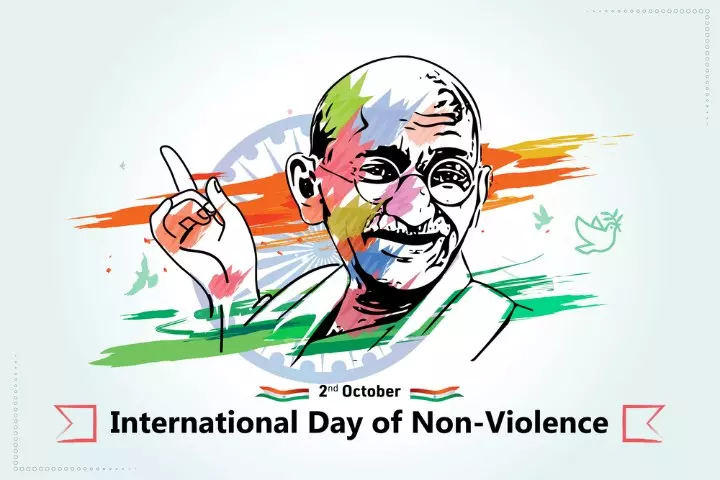On this day, 2nd October: International Day of Non-Violence - Celebrated on Gandhi's birthday

The International Day of Non-Violence, celebrated on October 2 to honor Mahatma Gandhi's birthday, promotes Gandhi’s philosophy of ahimsa (non-violence) as a means to achieve political and social change. The day emphasizes the power of peaceful protest, dialogue, and tolerance in resolving conflicts without resorting to violence. Observed worldwide, this day encourages individuals, communities, and nations to adopt non-violence as a fundamental approach to resolving conflicts, fostering mutual respect, and building inclusive, peaceful societies.
Gandhi’s non-violent methods, known as Satyagraha, inspired movements for civil rights and freedom across the world, influencing leaders like Martin Luther King Jr. and Nelson Mandela. His belief in the power of non-violent action to confront injustice continues to be relevant in modern efforts to address social, economic, and political challenges.
Significance of Non-Violence:
- Social Change: Non-violence has been shown to be an effective method for resisting tyranny and promoting social change.
- Global Relevance: In a world marked by conflicts, war, and injustice, Gandhi’s philosophy of non-violence offers a peaceful alternative to achieving solutions.
Activities:
- Public Campaigns: Peace marches, seminars, and educational events are held worldwide to promote the message of non-violence.
- UN Advocacy: The UN calls for global efforts to eliminate conflict, support human rights, and promote development through non-violent means.
This day serves as a powerful reminder of the potential for non-violent actions to create profound and lasting change in society. Gandhi’s legacy has influenced many global leaders and movements, including Martin Luther King Jr., Nelson Mandela, and the civil rights movement in the United States, all of whom adopted non-violent methods to fight oppression. The UN's commitment to this observance reflects the belief that non-violence is essential for building a more peaceful and just world.





